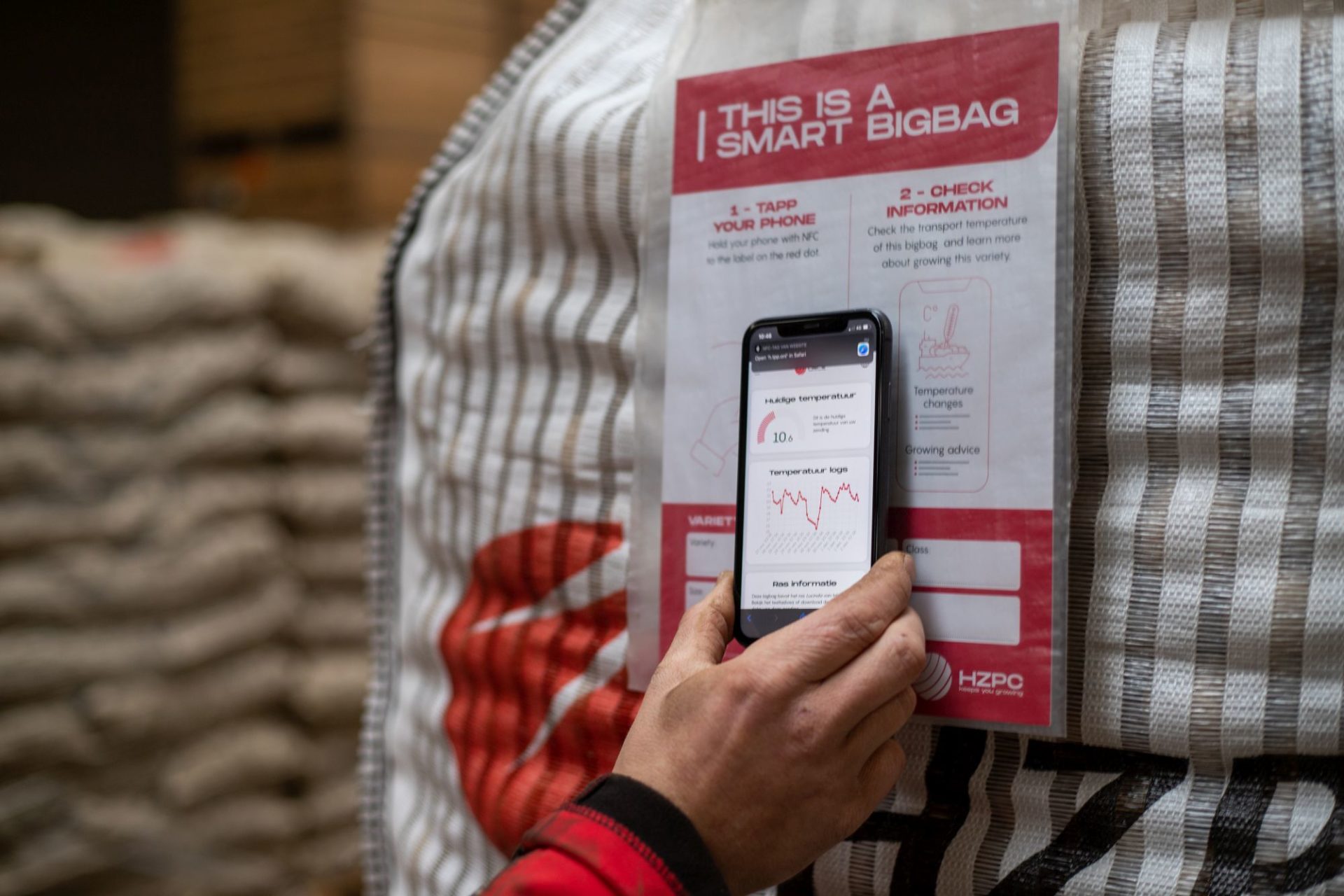Niels Postma (37) resigned last year to focus fully on his promising startup Tapp.online. In the midst of a corona crisis, with two young children and a baby. The Frisian entrepreneur - who sends his "intelligent paper" into the world from his attic room in Joure - likes to explain why he went for entrepreneurship.
In many businesses, the original drives fade into the background over time. With starting entrepreneurs, the drive is still brand new, as it is with Niels. He regularly asks himself and others the question: what would you do if money did not play a role? 'Because money has become a driving force that drowns out what really matters,' states the founder of Tapp.online.'Sure, money makes things possible, but at the core it's about the possibilities. What do you want to do? What do you want to contribute? That's what I want to focus on. By asking myself how I can use my ideas and talents. Not playing it safe, but doing what makes me happy and makes the world a little better. And if I can add value, the money will probably follow.
Internet of things
Niels speaks from confidence in his business: 'intelligent paper' that can be added as labels to products that go around the world and from which customers can generate useful data. 'It started with incorporating an NFC chip (near field communication, as in contactless payment, ed.) in leaflets, posters and product labels, for example,' says Niels. 'Useful for marketing purposes, to convey information and to gain insight into the extent to which that succeeds. Integrating that chip in paper turned out to be a wonderful basis, but the next step really completed the circle: adding sensors that measure transport conditions - such as temperature, humidity or shock intensity - including a link to a supporting data platform. That's how you bring the Internet of Things to places you wouldn't otherwise go. In paper, instead of the polluting plastic in which existing data loggers are often incorporated.'
Working sustainably and circularly is one of the biggest drivers behind Niels' business. 'With three children, I am more aware than ever of the future. And I'm not alone in that. The call to take better care of our planet is growing and companies are moving with it. With my intelligent paper and cardboard, I can make a contribution. Because it is recyclable and also because the material is increasingly extracted from agricultural waste, instead of trees. The chip, sensors and printed mini-batteries that I put in the paper are minuscule and, like staples, fine for recycling. That's quite a step forward compared to plastic loggers that end up in waste incineration in many countries.'
Surprising twist
How did Niels come up with this idea? 'By chance,' explains the entrepreneur. 'After law school, I realized that I am not a person to lock myself in an office sixty hours a week. But what then? I joined my parents in the business, who had just sold their physical store to bet on an online culishop with sustainable products. Unfortunately, that went under during the period of the banking crisis. Then friends of my parents asked if I wanted to join them in the printing business, with the intention of taking over the company after their retirement. A completely new world for me. I soon discovered that a traditional print shop is not future-proof. Meanwhile, however, I was completely captivated by paper, and that drive brought a surprising turn of events.'
The more I studied paper, the more fascinated I became. Surely we can do more with a circular natural product? I wanted to reinvent paper, just as Tesla took the automobile to another level by adding technology, and just as Netflix shook up the entire world of film and television. The nerd in me - as a kid I already loved taking computers apart - started fiddling with paper and an NFC chip and voilà, that's how I arrived at intelligent paper. After a successful pilot at seed potato company HZPC, which supplies big bags of seed potatoes worldwide, I was asked whether I could also integrate sensors into the paper. And that succeeded. Right now, HZPC is doing another large pilot where sensors in the smart labels will map temperature fluctuations during transport. But the NFC chip also remains important: this allows buyers to read cultivation recommendations about the varieties on site with their smartphone, in their own language.'

Global impact
The publicity surrounding the bigbag pilot has already led to requests from Australia, India and other countries. Niels was also invited to talk about his innovative product at CES, the world's largest tech trade show that took place online this year because of corona. 'Well, that corona crisis is unfortunate,' says Niels, 'but everything else adds up. My intelligent paper and accompanying data platform are a scalable concept that can have global impact. I am now working with one rock-solid programmer and want to build that into a powerful team. My focus is on the technology of the smart paper and for the production side I am working with partners. For a long time I thought: what am I good at? My strength turns out to be that I know a little bit about a lot and can cleverly link that to a very accessible circular product. Now that that is catching on, I really have the opportunity to make the world a little better with something that also makes me happy. That is what I wanted to do after my studies, but at that time I had no idea ...'.
Answer 4 simple questions to quickly find out if you may qualify for funding through NOM.
